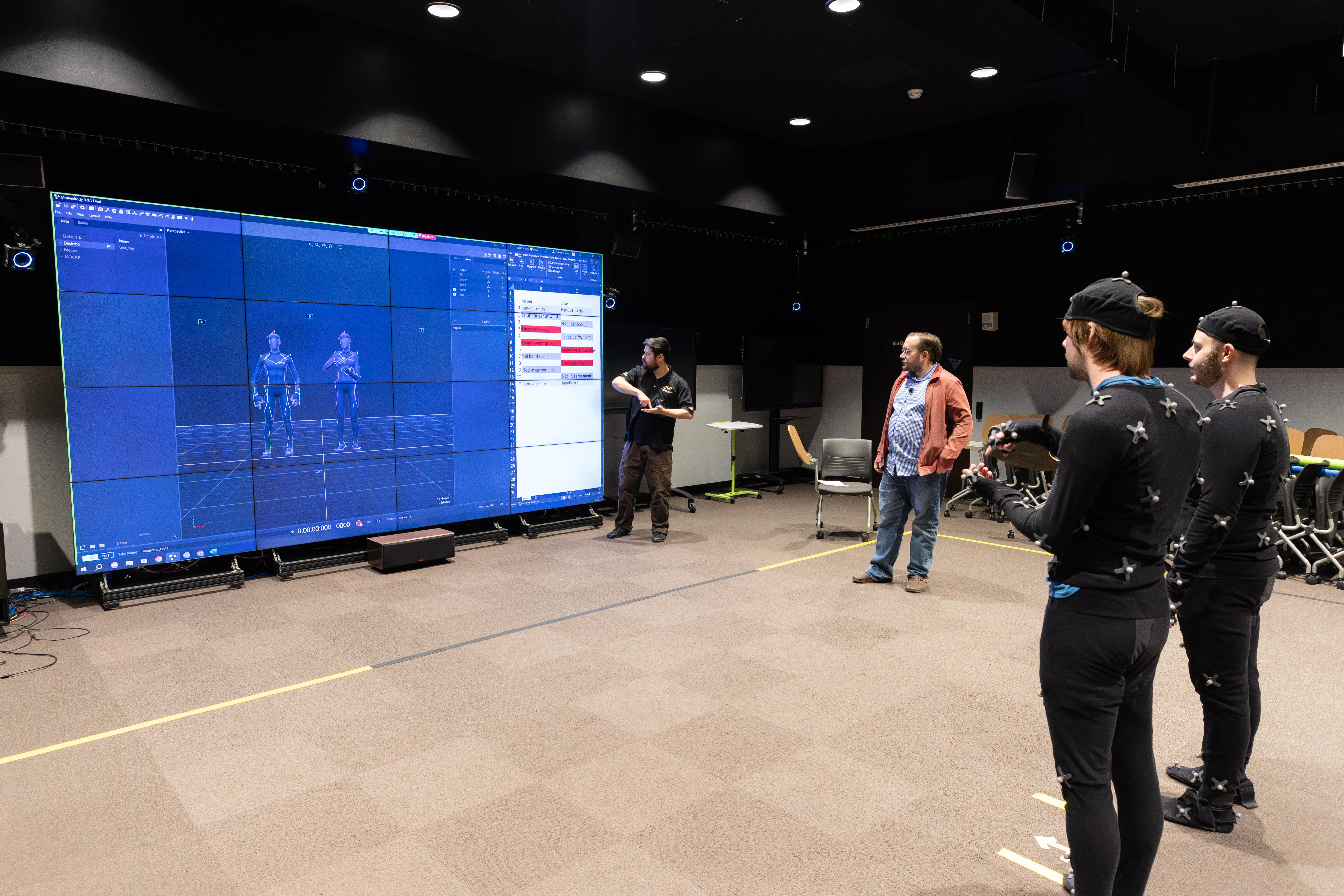Political science professor pushes boundaries in his field with research in virtual reality, thanks to Envision Center
In collaboration with the Rosen Center for Advanced Computing (RCAC)’s Envision Center, a Purdue political scientist is leveraging the immersive nature of virtual reality and incorporating it into his research in ways that are novel for his field.
Bryce Dietrich, an associate professor of political science, studies political and social questions about how people move through space and relate to each other. One of the challenges of that work is that if you’re looking at a large gathering, you can see that people positioned themselves in a certain way, but you don’t know very much about what that behavior means.
That’s where virtual reality and the Envision Center come in – within a simulated environment, Dietrich can create the type of social interactions he’s interested in studying and can do so in a controlled setting.
Initially Dietrich’s collaboration with the Envision Center was just an exploratory exercise to see what a virtual reality environment could look like.
“But when we saw the simulation they had created for us at the Envision Center, I was just blown away by the immersive nature of it,” says Dietrich.
“What struck me the most was that you know that you’re in a simulated world, but all your natural impulses based on the life experiences you’ve had are naturally reflected in it, and you move through it just as you would the real world.”
The simulation Dietrich and the Envision team developed takes advantage of the Envision Center’s virtual reality theater, The Forge, which allows multiple people to share the same virtual reality experience and to physically move through real space as they move through the simulated environment.

This type of research is a new approach to using VR in the field of political science, where VR has previously mostly been used as an extension of conventional video, for example, showing someone a political ad in a 3-D environment, which, while useful, doesn’t take advantage of the full power of the technology.
“Virtual reality is really exciting because it gives you flexibility as a researcher to create scenarios that you’re interested in, and to be able to do it in a unique and novel way,” says Dietrich.
This work will be highlighted at two upcoming conferences: the Annual Meeting for the Society of Political Methodology in Los Angeles, and the American Political Science Association Annual Meeting in Philadelphia.
Dietrich says this collaboration is just the beginning of figuring out how to best deploy the Envision Center’s resources for social science work.
The Envision Center, which recently celebrated its 20th anniversary, provides novel solutions to effectively communicate complex research topics.
Located in the basement between Stewart Center and the Purdue Memorial Union (STEW B001), the Envision Center holds multiple lab spaces as well as a large conference room and a motion capture stage. The space can also be used for client meetings, training seminars, and small events.
Computer graphics, advanced visualization (sight), auditory (sound), haptic (touch), and multimodal interaction integrate with state-of-the-art high performance computation to assist researchers, instructors, and leaders in their quest for new knowledge and innovative products.
Virtual simulation, multimedia production and data visualization and analysis are just some of the services the Envision Center offers the Purdue community.
In addition to his work with the Envision Center, Dietrich also owns nodes in RCAC’s Negishi community cluster, which he uses to manage and study large datasets.
“Negishi has been absolutely fantastic for my research,” says Dietrich, who also teaches a machine learning class in the political science department that uses the Negishi cluster and helps familiarize students with high-performance computing.
To learn more about the Envision Center and see examples of recent projects, visit the Center’s website. For more information about working with RCAC, contact rcac-help@purdue.edu and visit the RCAC website.
